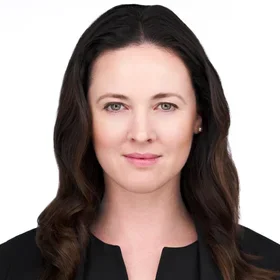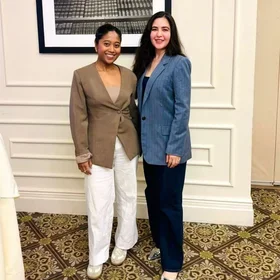What led you to join the Negotiation and Conflict Resolution program (NECR)?
Before joining the program, I worked in litigation in Mexico. My job was to defend what was right for my clients, regardless of the disputants’ relationships or the underlying issues and needs of every party. I had one case in particular where a friendship of 25 years and partnership in mutual business ventures was broken over an apparent misunderstanding about a contract. This led these two friends to a dramatic breakdown of lawsuits (civil and criminal). It causing suffering, anxiety, and distrust between my client and his former best friend and business partner.
I realized then that I lacked the skills to deal with conflict in a more constructive way. I questioned the moral basis of profiting from conflicts by offering clients only a technical and legal defense without offering them with other options to work out their differences. This case made me want to learn about the conflict itself and about the methods of intervention in a more constructive way.
What were you doing before the program?
I was working at my family’s law firm. I grew up surrounded by attorneys, mostly litigators. I was used to disputes and competition. My assertiveness helped me become a successful litigator. Because I worked with disputes, I tended to avoid conflict in my personal life, giving in instead of looking for creative ways to achieve mutually beneficial solutions. The program helped me realize the paradox I was living in – feeling comfortable while working with conflict and avoiding it when it came to my own needs. I wanted to learn more and gain skills in balancing conflicts professionally and personally.
What was your experience like, both as a NECR student and as an international student?
My experience was a combination of introspection and collaboration. The program led me to a better understanding of myself, recognizing my personality traits, and learning about my approaches in conflict resolution and also to understand how conflicts emerge between people. I particularly liked the constant interaction and teamwork with classmates from diverse backgrounds and nationalities. I made friends with people from all over the world where I learned so much from their cultures, interests, and experiences. It was a community with a shared interest in building healthy and long-lasting relationships and societies. Columbia University is a very cozy home for international students. It helped me adapt to New York City and the American learning system. The diversity within the community at Columbia helped me define an authentic expression of who I really am.
How was the mentorship in the program?
NECR professors are open to meeting with students to offer guidance, either related to their subject or focusing on professional inquiries. I became close to two professors that had a similar background to mine, both female lawyers who have expanded their approach in conflict resolution through mediation and negotiation studies and practice. They gave me insightful advice that helped me structure my curriculum in the program. Now that I have become a professor at Universidad Iberoamericana in Mexico City, I intend to honor their mentorship by being just as accessible to my students and committed to coaching as my professors were with me. These professors did not only deliver guidance, they also awoke a social responsibility in me.
How did the degree help you land the job that you have now?
The communication skills, the techniques to design conflict resolution strategies, and the theories of sustainability that I have acquired in the program have helped me in assisting my clients in conflict prevention while building new business relationships and establishing a commitment to collaboration between parties. Now I work as a corporate lawyer at an energy company that focuses on projects in infrastructure involving the Mexican state-owned oil company, multinational corporations or banks, national companies, and host communities. The negotiation techniques that I learned in the program helped me understand the underlying interests and needs of all parties involved in order to create innovative solutions that are satisfying for all. Most of all, the program equipped me with the skills to become a facilitator at the negotiation table.
What advice do you have for new NECR students?
Be proactive about getting to know your classmates and professors. Participate actively in as many extracurricular activities as you can: social gatherings, AC4, ANCoRS, or start a new group based on [common interests]. You can learn as much from them as you will from all the readings and lectures.


